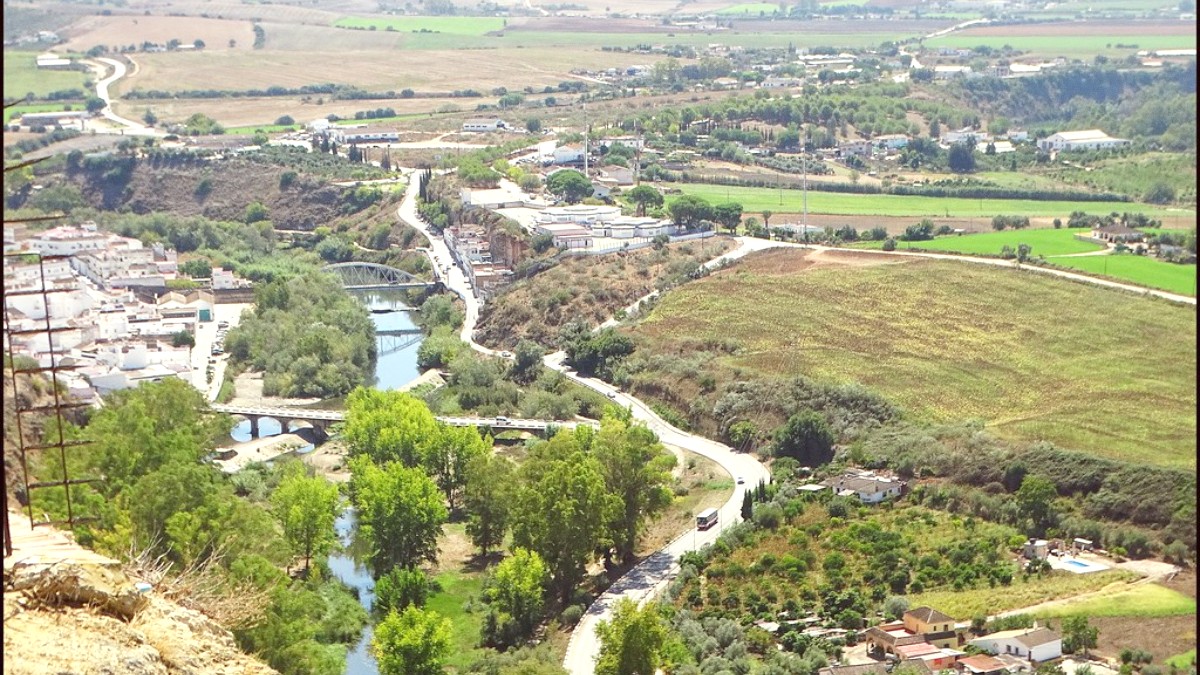
Andalucia, Spain
Arcos de la Frontera has a Mediterranean climate, with hot, dry summers and mild, wet winters. This weather pattern influences travel timing. Spring (March-May) offers pleasant temperatures, typically ranging from 15-25°C (59-77°F). Days are mild and sunny, with the countryside becoming lush and green after winter rains.
Autumn (September-November) maintains pleasant warmth, with temperatures between 18-28°C (64-82°F) in early autumn. The weather cools gradually through October and November, settling into a range of 12-20°C (54-68°F). This season presents a comfortable climate for outdoor activities.
Summer heatwaves frequently exceed 40°C (104°F). Staying hydrated by drinking plenty of water and seeking shade during midday hours (typically 1 PM - 5 PM) is advised.
Wildfire risk exists during the hot, dry summer months in surrounding natural areas like Sierra de Grazalema. Observe any warnings or restrictions when exploring these regions.
(June-August, Easter)
Guaranteed hot, sunny weather. All attractions open.
Very high temperatures. Higher prices. Larger crowds.
(April-May, Sep-Oct)
Ideal temperatures for sightseeing. Fewer crowds. Moderate prices.
Occasional spring rain. Residual heatwaves early autumn.
(Nov-March, excl. Easter)
Lowest prices. Authentic local experience. Cooler temperatures for walking.
Higher chance of rain. Some businesses may have reduced hours.
Shoulder seasons (April-May, September-October) present the most comfortable temperatures for exploring the town on foot. Light conditions also favor photography.
Spring (March-May) and Autumn (September-November) are excellent for exploring Sierra de Grazalema.
Bodegas open all year. Spring and autumn are good.
Check park authorities for permits to some trails.
Lakes like Lago de Bornos.
Semana Santa (Holy Week) or local ferias offer cultural immersion.
Royal Andalusian School of Equestrian Art in Jerez.
Spain's regulations align with the Schengen Area, affecting different nationalities.
Spain is a member of the Schengen Area. Free movement between 27 European countries exists. Non-EU/EEA/Swiss citizens typically need a Schengen visa for stays exceeding 90 days. For shorter tourist stays (up to 90 days), many nationalities are visa-exempt.
Individuals needing a Schengen visa must submit applications at the Spanish embassy or consulate in their country of residence. This process involves completing an online form, scheduling an appointment, submitting documents, and an interview. Start well in advance.
Access to some specific hiking trails within the Sierra de Grazalema Natural Park may need a permit. This occurs especially during peak seasons or for sensitive ecological areas (e.g., El Pinsapar trail).
No specific health-related entry requirements exist beyond standard international travel norms. Consulting a healthcare professional well in advance of travel for routine vaccinations and any recommended travel-specific immunizations is a sound practice.
Permits are issued by the park authorities.
Often limited availability for permits.
Check with park visitor centers or official websites.
For Schengen visa applicants, travel insurance is mandatory (minimum coverage of €30,000).
Spain does not levy general entry fees for tourists upon arrival.
Costs vary based on travel style. Spain uses the Euro (€). ATMs are widely available, especially in the lower, modern town. Credit and debit cards are widely accepted.
For a comfortable journey without excess, mid-range budgets cover decent accommodation, varied dining, and regional transit.
For a premium experience, luxury travel in Arcos includes high-end accommodations, fine dining, and private transport options.
Tipping in Spain is not as ingrained or expected as in some other countries. Service charges are usually included in the bill.
Spain presents high-quality healthcare and a generally safe environment for visitors.
No specific vaccinations are required for entry to Spain from most countries.
Ensure routine vaccinations are up-to-date (e.g., MMR, DTP, Polio). Hepatitis A and B are recommended for most travelers.
Always consult a healthcare professional or travel clinic well in advance for personalized advice.
Prevention is for a comfortable trip.
Heatstroke/Dehydration is a main concern, especially during hot summers. Drink plenty of Bottled water, wear lightweight clothing, use Sunscreen (SPF 50+), and a Wide-brimmed hat. Avoid strenuous activity during midday heat (1 PM - 5 PM). Sunburn risk is high; wear Sunglasses.
Mosquitos can be present; use Insect repellent. Foot blisters from extensive walking on cobbled streets are common; wear comfortable, Supportive walking shoes like Skechers Performance Go Walk. Pack Blister plasters.
Motion sickness may occur on winding roads; pack appropriate remedies.
Spain has a high-quality public healthcare system. EU citizens carry an European Health Insurance Card (EHIC).
Pharmacies (Farmacias) are identifiable by a green cross. They offer over-the-counter medications and basic health advice. Many pharmacists speak English.
Dial 112 for all emergencies (ambulance, police, fire departments) from any phone. This is a nationwide, free call.
Arcos de la Frontera is a very safe town; violent crime is rare. Petty crime like pickpocketing is less prevalent than in major cities.
Some resources enhance health and safety during travel.
Consider a LifeStraw personal water filter for outdoor activities if water sources are uncertain.
Adventure Medical Kits provide first aid supplies for travelers.
Secure your belongings with Pacsafe anti-theft bags and travel security products.